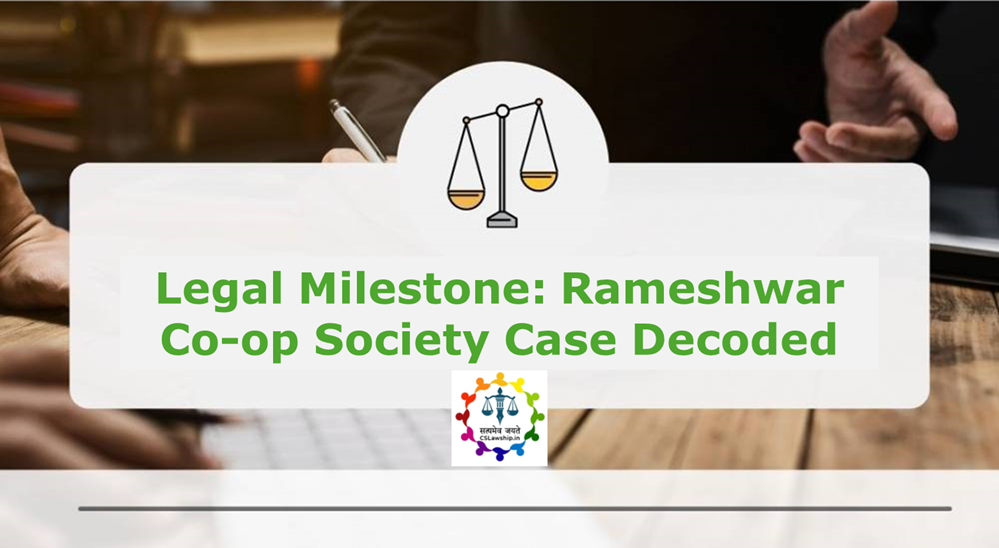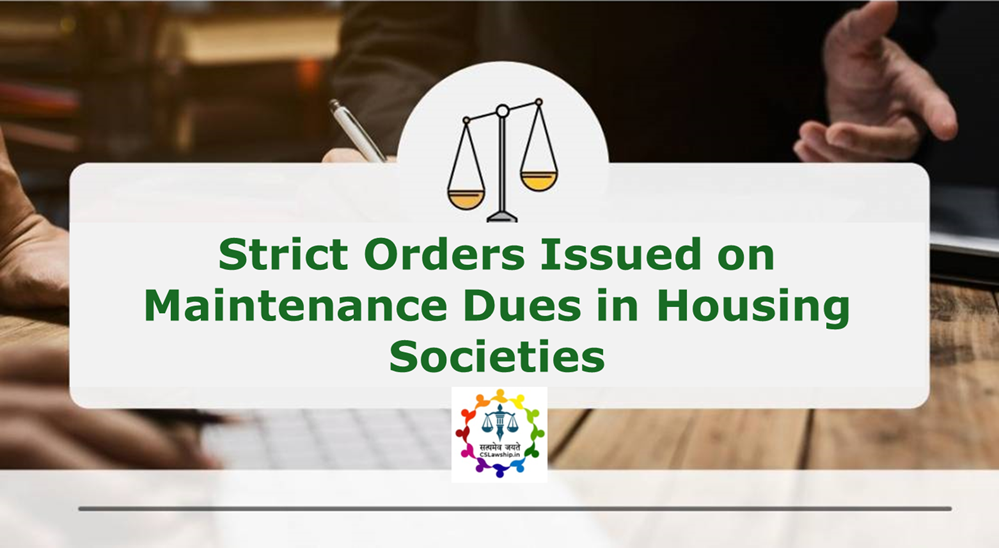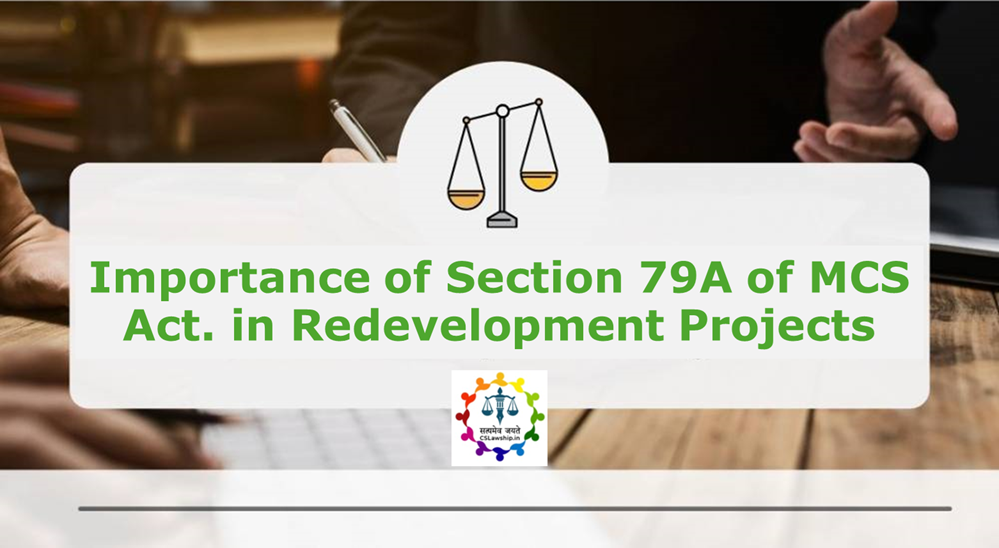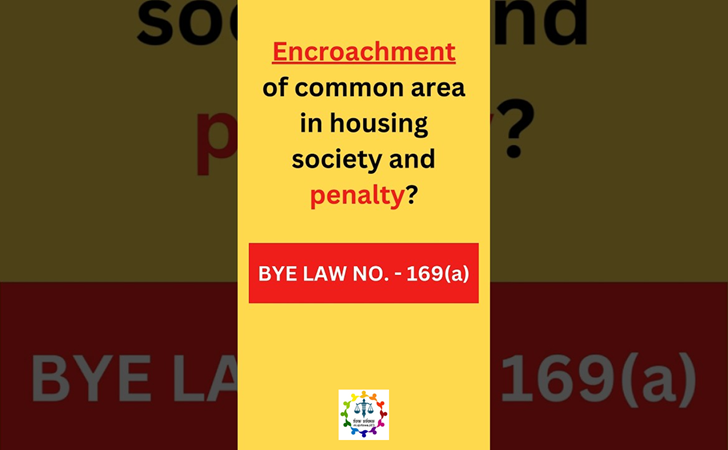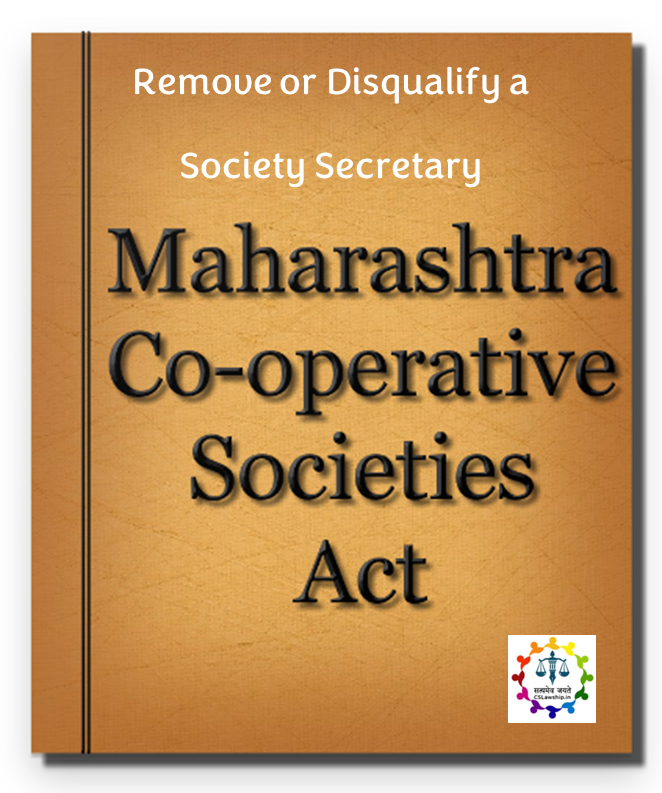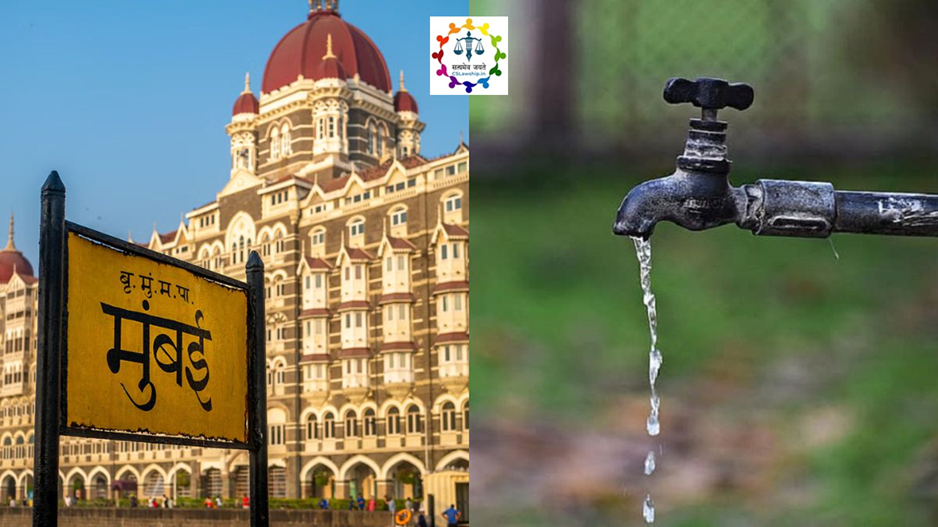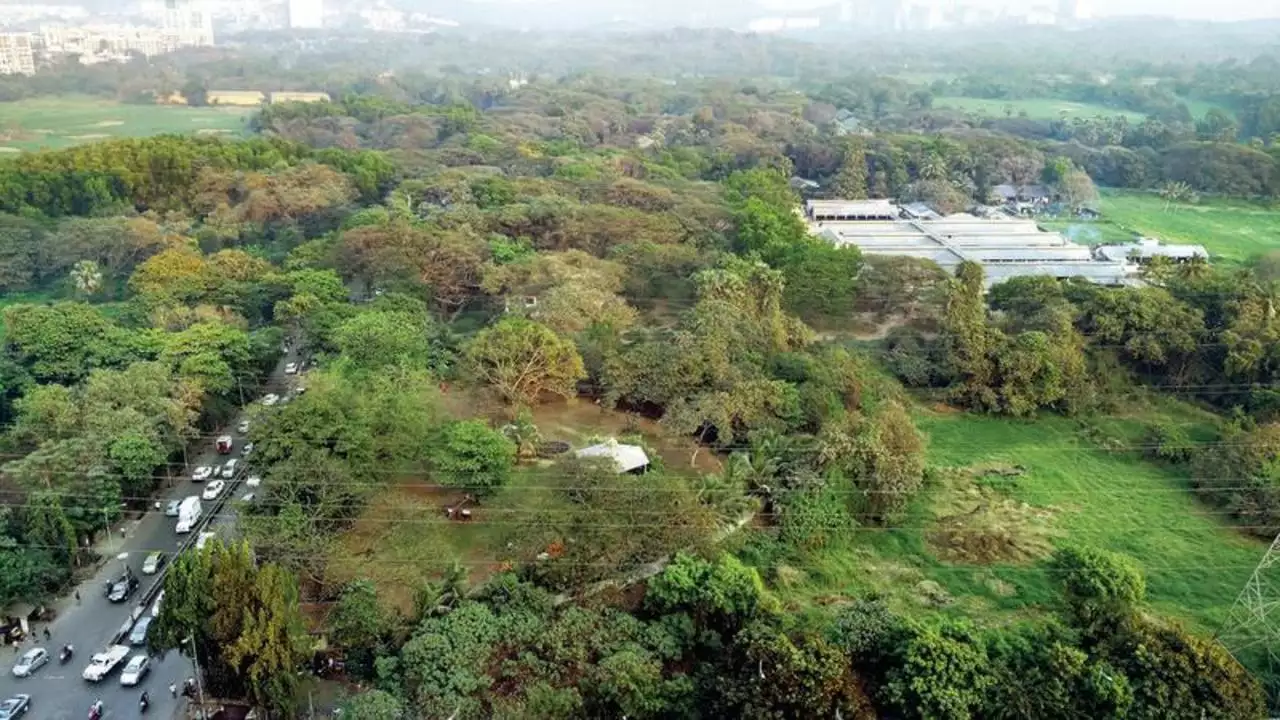Landmark Ruling Empowers Cooperative Housing Societies in Maharashtra: A Deep Dive into the Rameshwar Co-Op Hsg Society Ltd Case
Mumbai, Maharashtra
In a significant judgment delivered on May 9, 2025, the High Court of Judicature at Bombay, in the case of
Rameshwar Cooperative Housing Society Limited and Ors. v. Divisional Joint Registrar, Cooperative Societies
has quashed an order to deregister an apex cooperative housing association. This ruling reinforces the statutory rights of flat purchasers and sets a crucial precedent for cooperative housing societies across Maharashtra, particularly concerning their autonomy from developers.
The Case: A Battle for Autonomy and Conveyance
The petitioners in this case were three cooperative housing societies: Rameshwar, Mansarovar, and Girija, all part of the Neelkanth Heights project in Thane. The developer, Neelkanth Realtors Pvt. Ltd. formerly Abhinav Real Estates Pvt. Ltd., had undertaken the construction of this large housing project in phases. Despite the completion of substantial portions of the project and the occupation of flats, the developer failed to constitute an apex body or association of societies as mandated by Section 154B of the Maharashtra Cooperative Societies Act, 1960 MCS Act.
Faced with this inaction, the individual societies took the initiative to form and register the Neelkanth Heights Cooperative Housing Societies Association Limited on April 1, 2022. Subsequently, due to the developer\'s persistent failure to execute a conveyance deed as required by Section 11 of the Maharashtra Ownership Flats (Regulation of the Promotion of Construction, Sale, Management and Transfer) Act, 1963 (MOFA), the newly formed apex association passed a resolution to file an application for deemed conveyance.
In what appeared to be a retaliatory move, the developer filed an application with the Divisional Joint Registrar, Cooperative Societies (Respondent No. 1), seeking the deregistration of the apex association. The developer contended that the association was prematurely registered without his consent and that the overall layout was still incomplete, alleging misrepresentation in its registration. Acting on this, the Registrar deregistered the association on February 28, 2025, under Section 21A of the MCS Act. This order was challenged by the societies before the Bombay High Court.
The Court's Order: Upholding Statutory Rights
The Bombay High Court, presided over by Justice Amit Borkar, delivered a scathing judgment, quashing and setting aside the deregistration order issued by the Divisional Joint Registrar. The court's decision was based on several key findings:- Developer's Lack of Locus Standi: The High Court emphasized that the developer has no legal standing ("locus standi") to seek the deregistration of a duly registered society. The formation of a cooperative society by flat purchasers is a statutory right under the MCS Act and MOFA, and this right cannot be curtailed by private agreements with the promoter.
- Autonomy of Apex Bodies: The court clearly distinguished between an association of purchasers under MOFA and a cooperative housing association (federation of societies) under the MCS Act. It held that once individual cooperative societies are validly formed and registered, their decision to collectively form an apex or federal association under Section 154B-8 of the MCS Act is an independent legal act, which does not require further ratification or consent from the developer.
- Interpretation of Section 21A of MCS Act: The court clarified that the power to deregister a society under Section 21A of the MCS Act is a punitive measure, reserved for cases where registration was obtained through actual fraud or gross misrepresentation. It cannot be invoked for mere procedural lapses or technical defects, nor can it be used by a developer to frustrate the statutory rights of flat purchasers. The court found no cogent evidence of fraud or misrepresentation in this case.
- Intervention Despite Alternative Remedy: Despite the existence of an alternative statutory remedy, the High Court chose to exercise its writ jurisdiction under Article 226 of the Constitution. The court found that sending the petitioners back to an appellate remedy would only delay justice and assist the developer in defeating the legal rights of flat purchasers, especially given the serious allegations of official record tampering. The court emphasized its duty to prevent the misuse of welfare laws like MOFA.
Benefits for Other Cooperative Housing Societies in Maharashtra
This judgment carries significant implications for cooperative housing societies across Maharashtra:
- Empowerment Against Developers: The ruling firmly establishes that flat purchasers have an independent statutory right to form cooperative housing societies and their apex bodies, irrespective of the developer's consent or the project's completion status. This prevents developers from perpetually controlling housing projects through legal technicalities or by withholding consent.
- Protection for Deemed Conveyance: The decision acts as a safeguard against developers attempting to derail deemed conveyance proceedings by initiating frivolous deregistration applications. Societies can now confidently pursue their right to deemed conveyance without fear of their apex body being arbitrarily dissolved.
- Clarification on Deregistration: The judgment provides much-needed clarity on the strict interpretation of Section 21A of the MCS Act, limiting its application to genuine cases of fraud or deliberate misrepresentation. This protects societies from deregistration based on minor procedural errors or the developer's displeasure.
- Reinforcement of MOFA and MCS Act Objectives: The court reiterated that both MOFA and the MCS Act are welfare legislations designed to protect flat purchasers and ensure transparency and fairness in transactions. This ruling reinforces the legislative intent, ensuring that the spirit of cooperation prevails over the stratagems of those who profit from disunity.
In essence, this landmark judgment by the Bombay High Court strengthens the position of cooperative housing societies in Maharashtra, ensuring their autonomy and protecting their rights in dealing with developers. It sends a clear message that statutory obligations under MOFA and the MCS Act must be upheld, and misuse of legal processes to obstruct residents' legitimate collective efforts will not be tolerated.
Source:
- Rameshwar Co-Op Hsg Society Ltd Throu. ... vs Divisional Joint Registrar Co-Op ... on 9 May, 2025 (http://indiankanoon.org/doc/37100174/)
Legal Milestone: Rameshwar Co-op Society Case Decoded
Share This Blog
Spread the word! Share our blog on your favorite platform or send it to your friends.

